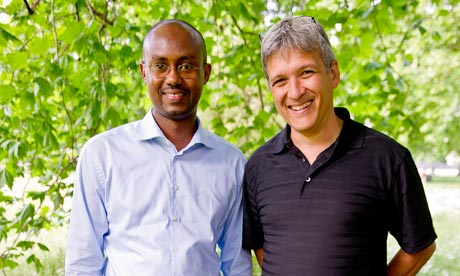The origins of the controversial natural gas deal between Egypt and Israel shows by Al Jazeera
The document (pdf) is printed on Egyptian petroleum ministry letterhead and dated January 26, 2004. It empowers East Mediterranean Gas (EMG) to export Egyptian gas "in the Mediterranean region and Europe." It specifically mentions the Israeli Electric Company as a customer.
The document is signed by Samih Fahmi, the former oil minister, who was jailed earlier this year while prosecutors investigate the pipeline deal.
EMG is a privately-owned company founded in 1999 by Hussein Salam, the Egyptian businessman and confidante of former president Hosni Mubarak who was arrested in Spain last week.
Salam, who will face corruption charges in Egypt, is accused of securing the deal through his connections to the president.
The most contentious part of the deal has been the price Egypt receives for its gas, a figure which the government has kept confidential.
Egyptian media have placed the price at between $0.70 and $1.50 per million British thermal units (BTU). Israeli media cite a higher price, between $2.50 and $4 per million BTUs.
Both are well below the global average of between $6 and $7.
The petroleum ministry document does not specify a price; that figure is believed to be stipulated in the agreement between the Egyptian and Israeli governments.
Jordan, which receives gas through the same pipeline - and previously paid $3 per million BTUs - agreed earlier this month to sign a new contract at prices closer to the global average.
Samir Radwan, the Egyptian finance minister, said earlier this year that all of the country's natural gas contracts - it also supplies France, Italy, Spain, Lebanon and Syria - will be reviewed.
Shipments were interrupted earlier this year following two explosions in the pipeline, one in early February, the other in late April. They resumed at test levels last week, and Egyptian officials say they will soon increase the supply.courtesy: Al Jazeera
The document (pdf) is printed on Egyptian petroleum ministry letterhead and dated January 26, 2004. It empowers East Mediterranean Gas (EMG) to export Egyptian gas "in the Mediterranean region and Europe." It specifically mentions the Israeli Electric Company as a customer.
The document is signed by Samih Fahmi, the former oil minister, who was jailed earlier this year while prosecutors investigate the pipeline deal.
EMG is a privately-owned company founded in 1999 by Hussein Salam, the Egyptian businessman and confidante of former president Hosni Mubarak who was arrested in Spain last week.
Salam, who will face corruption charges in Egypt, is accused of securing the deal through his connections to the president.
The most contentious part of the deal has been the price Egypt receives for its gas, a figure which the government has kept confidential.
Egyptian media have placed the price at between $0.70 and $1.50 per million British thermal units (BTU). Israeli media cite a higher price, between $2.50 and $4 per million BTUs.
Both are well below the global average of between $6 and $7.
The petroleum ministry document does not specify a price; that figure is believed to be stipulated in the agreement between the Egyptian and Israeli governments.
Jordan, which receives gas through the same pipeline - and previously paid $3 per million BTUs - agreed earlier this month to sign a new contract at prices closer to the global average.
Samir Radwan, the Egyptian finance minister, said earlier this year that all of the country's natural gas contracts - it also supplies France, Italy, Spain, Lebanon and Syria - will be reviewed.
Shipments were interrupted earlier this year following two explosions in the pipeline, one in early February, the other in late April. They resumed at test levels last week, and Egyptian officials say they will soon increase the supply.courtesy: Al Jazeera

 The cryptochrome protein comes in more than one type - and the human one can perform as the fly's
The cryptochrome protein comes in more than one type - and the human one can perform as the fly's